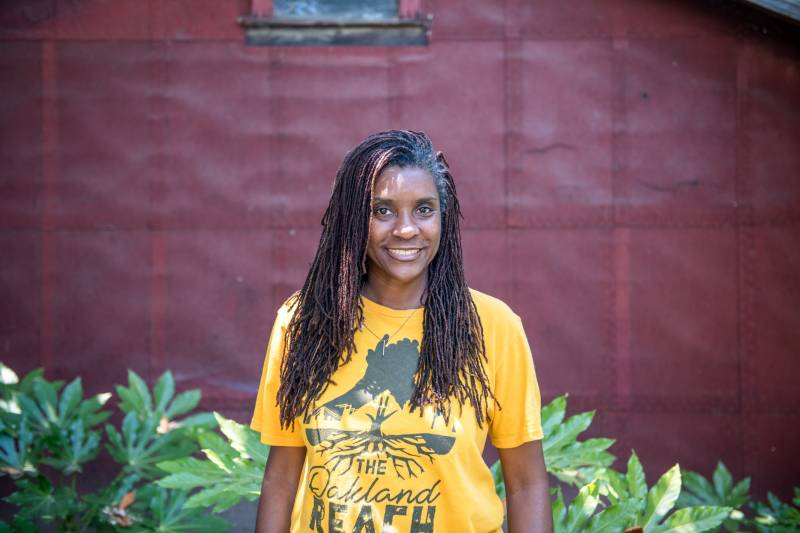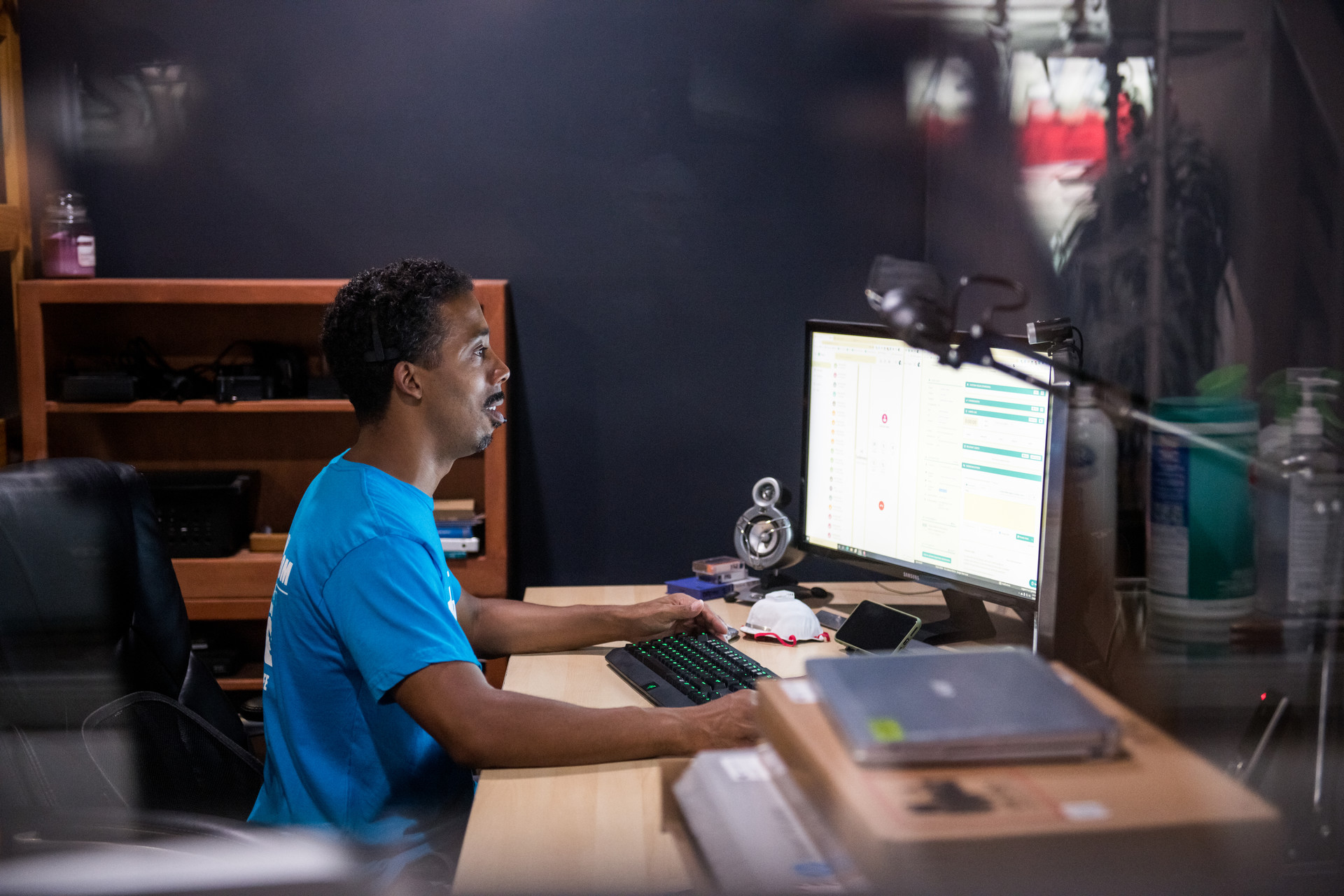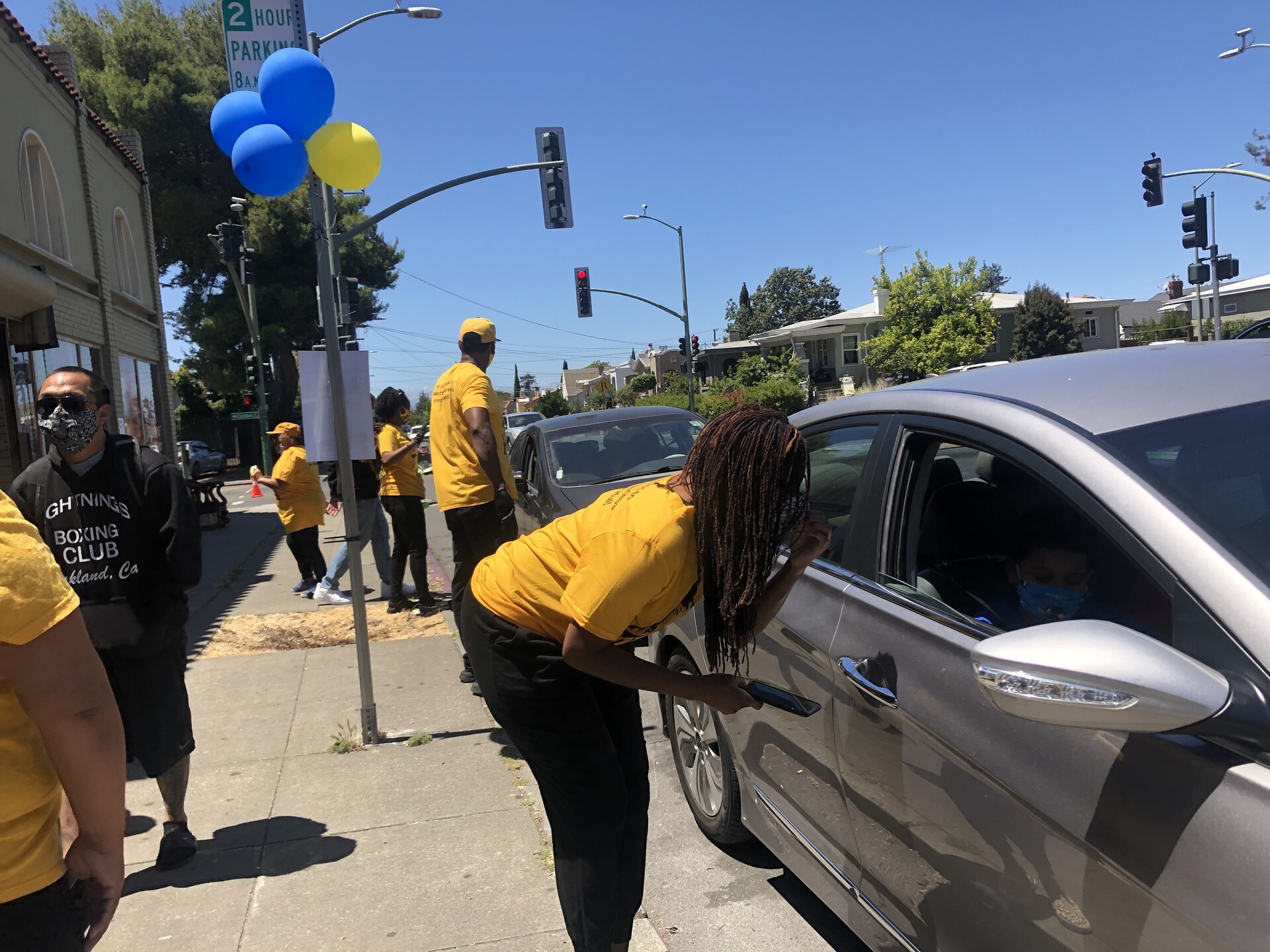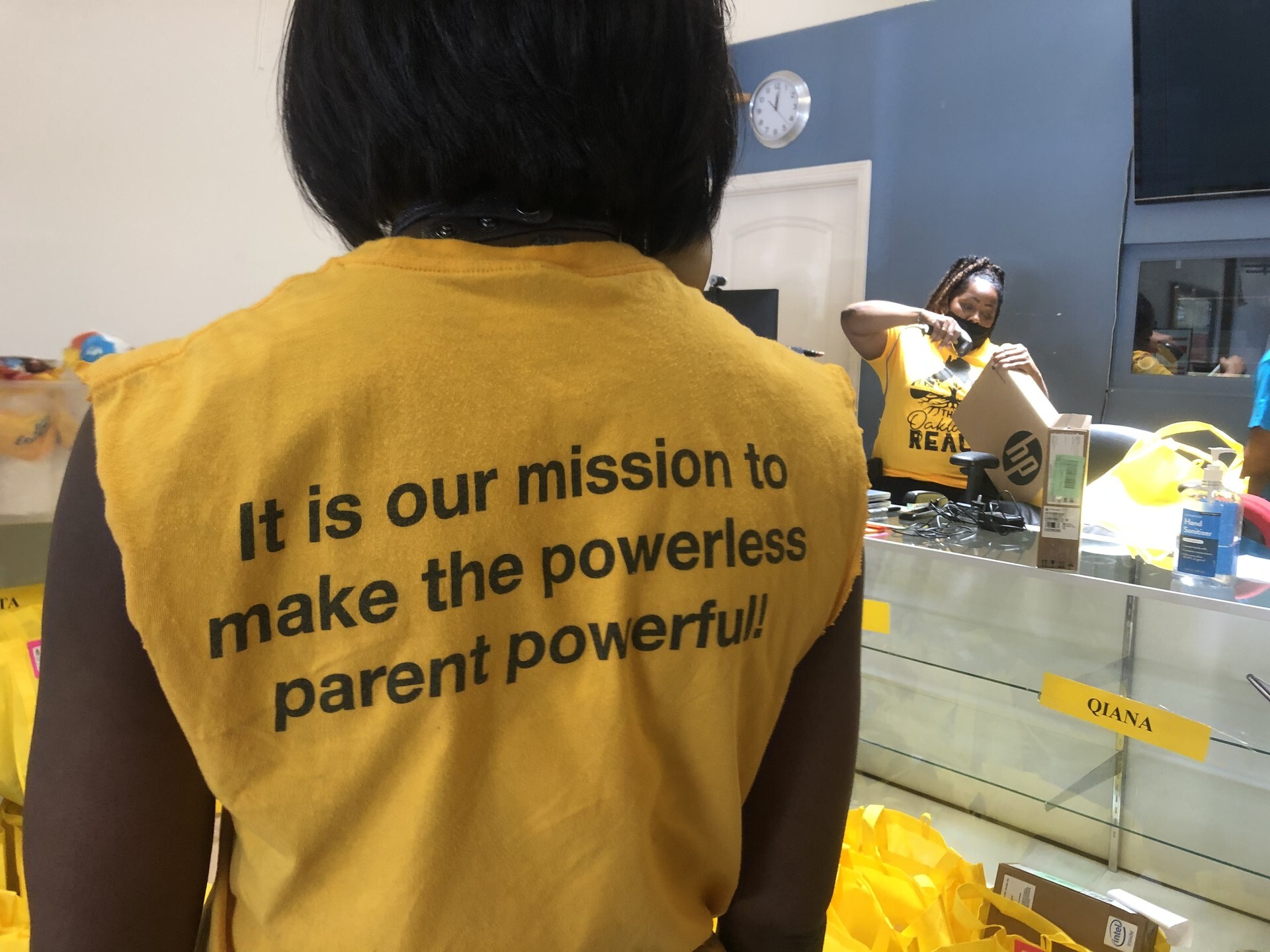When the COVID-19 pandemic forced schools to close this spring, and about half of Oakland Unified students didn’t have the tools they needed for online learning, computer shop owner Yakpasua Zazaboi’s phone started ringing off the hook.
How an Oakland Parent Advocate Group Is Making Distance Learning Possible This Summer

“Our voicemail is still full of people trying to get a hold of computers,” says Zazaboi, the owner of Sydewayz Cafe in East Oakland, an internet cafe and tech repair shop that has been closed since shelter-in-place orders in March. “They’re waiting for somebody to say we have the solution. But as we’ve seen, it’s been months. That hasn’t happened.”
Despite an OUSD campaign this spring that had raised $13 million for devices and WiFi hotspots, about 5,000 students still lacked the basic technology they needed for distance learning as the end of the school year approached.
That prompted Zazaboi and a group of Oakland parents to take matters into their own hands. They have since launched a summer school program in an effort to help provide those students with the necessary technology and make up for lost learning since schools closed.

“We didn’t set out to start a summer school, but a summer school is what’s needed,” says Lakisha Young, who runs The Oakland REACH, the parent advocacy group leading the effort.
In the wake of the pandemic, Young says, the organization raised more than $300,000 from foundations and individual donations, and distributed small grants of up to $550 to students’ families for basic needs like food and rent.
In the process, Young heard how worried parents were about their kids falling behind in school.
“Immediately, when COVID hit, you heard so many people saying like, ‘Oh my God, it’s just going to get worse for Black and brown kids,’” she says. “Well, then what are you going to do about it?”
Young recruited 14 Oakland teachers from district and charter schools to run summer school classes for K-8 students, beginning in June, using curriculum and mentorship resources available through the National Summer School Initiative to help guide the project. Supplies were distributed from Zazaboi’s storefront and he will be on hand throughout the summer to provide tech support to families as they learn to navigate distance learning.
To help run the summer school program, Young hired Omar Wandera, who until recently worked as director of African American Student Achievement at the West Contra Costa Unified School District.

For Wandera, the effort was an opportunity to experiment with an educational model that puts parents center stage. “A lot of schools across the country have tried to figure out ways to bring parents in,” he says. “This is a unique opportunity for parents to really take control of their own students’ lives and their own students’ education.”
As Wandera describes it, his job this summer is to work with teachers to ensure kids get high quality English and math instruction — “Something that they haven’t gotten in many, many months,” he says — to help make up for any losses that occurred during distance learning at the end of the school year.
“This is one of those things that could be a positive reaction to a very negative situation,” he says. “It could be a huge opportunity. We might learn a lot about how to do distance learning really well.”
Deprece Bonilla’s second- and fourth-grade children are among the 200 OUSD students signed up for Oakland REACH’s summer school program. “The challenge with my family was that we did not have internet at all,” she says, noting that was an intentional choice because she wanted her kids playing outside, not glued to screens.
“I wanted to do something for them for summer,” Bonilla adds. But both she and her husband were out of work, and money for a summer program was tight. “So when I heard about this, I was like, ‘Perfect.’”
Before the pandemic, Bonilla’s kids were on track in school and she doesn’t want them to fall behind. She says having to adjust to unfamiliar digital devices, and navigate platforms like Zoom and Google Classroom, has made the transition to distance learning rough.
Bonilla’s family received two laptops through the program, which they will get to keep, so her kids won’t have to continue taking turns using the single tablet borrowed from the school district.

The summer school program is part of Oakland REACH’s broader City-Wide Virtual Hub initiative, which pairs families with liaisons to help them navigate the educational supports and “create a culture of distance learning” at home, Young says.
The liaisons are also trained to help connect parents to housing and employment services. “Our families are sometimes stressed with two critical pieces of life — disrupting intergenerational poverty and the school-to-prison pipeline for their children and trying to just survive,” Young says. “This solution has to integrate both.”
Parents will also receive $250 to $500 stipends for participating.
Young says she hopes to expand the hub initiative in the fall to continue supporting families as kids return to distance learning through their schools.
“These issues are not new issues,” Young says, “but we have a new opportunity to do something.”
This story has been updated to reflect that Omar Wandera left his role with WCCUSD since the piece was reported.
